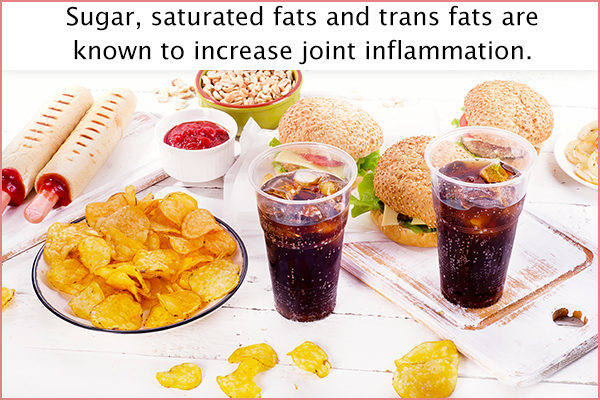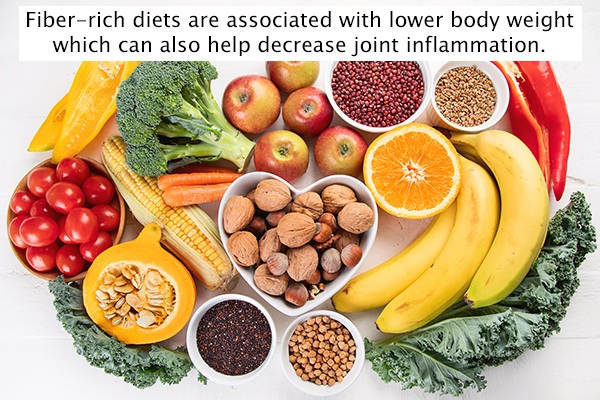In this article:
Pain can originate from many different types of injury, but it is usually associated with some degree of inflammation.

Inflammation is a cellular response to an injury in the body and occurs through inflammatory mediators, such as hormones and histamine. (1) These mediators cause blood vessels to dilate and carry higher volumes of blood to the injured area, therefore initiating healthy healing. (1)
Epidemiology of Pain and Inflammation
Pain affects many Americans and their ability to function at full capacity, whether physically or mentally. Long-term pain is so common that 1 in 5 Americans experience pain chronically. (2)
Worldwide, 1 out of 3 people die due to chronic inflammatory diseases such as diabetes, cardiovascular diseases, chronic obstructive pulmonary disease (COPD), cancer, and obesity. (3)
Another common chronic inflammatory disease that affects approximately 350 million people worldwide and 20% of the population in the United States is arthritis and joint diseases. (3)
Causes of Joint Inflammation
Apart from the inflammatory diseases mentioned above, inflammation can occur due to: (4)
- Injury
- Inflamed joint linings that cause nerve irritation
- Damaged bones that produce pain
- Fluid buildup in a joint that leads to stiffness
- Muscle weakness that places stress on the joints
- Improper functioning of the immune system
Symptoms of Inflammation
Inflammation has five main symptoms:
- Redness
- Heat
- Swelling
- Pain
- Loss of function
Inflammation can be easily managed with anti-inflammatory medications. Apart from this, many diets and lifestyle changes can be done to combat joint inflammation. It can be painful, but multiple studies show that it can indeed be improved.
Foods to Avoid

Here are some foods that may cause joint inflammation.
1. Sugar
While we all love a good bowl of ice cream or a slice of warm pie, sugar has been proven to contribute to inflammation. (5)
A diet rich in refined sugars, starches, and trans or saturated fatty acids can trigger the innate immune system, stimulating pro-inflammatory cytokines that cause swelling and pain. (6)
You can limit your processed sugar intake by avoiding sweets, pastries, candy, and drinks with added sugar. Instead, incorporate 1–2 servings of fresh fruit in your diet every day.
2. Saturated fats
Research shows that consuming saturated fats can trigger inflammation in fat tissue in the body. (5) Saturated fats can be commonly found in fried foods, whole dairy products such as butter, baked goods, and fatty cuts of beef and pork.
In America alone, the single largest contributor to saturated fat intake is pizza and cheese.
3. Trans fats
Trans fats are typically man-made and have been shown to increase the risks of cardiovascular events, diabetes, and body inflammation greatly. (7)
In 2015, the Food and Drug Administration determined that partially hydrogenated oils (PHOs), the primary sources of trans fat in processed foods, were no longer considered safe and could not be added to foods after 2018. (8) Read labels on processed foods and avoid all partially hydrogenated oils.
4. MSG
Monosodium glutamate (MSG) is a food additive commonly used in Asian cuisines and soy sauce. It is also added as a flavor enhancer in fast foods, salads, and deli meats. MSG can greatly affect liver health and trigger chemical pathways that cause chronic inflammation. (9)
5. Advanced glycation end products
Heat-processed foods, while common, contain high amounts of advanced glycation end products (AGEs). These compounds have been found to increase inflammation and oxidative stress in the body. (10)
Foods to Eat
Here are the most common foods that prevent inflammation:
1. Fiber (including fresh fruits and vegetables)

Not only has fiber been linked to a reduced risk of developing heart disease, stroke, hypertension, gastrointestinal disorders, obesity, cancer, and diabetes, but high fiber intake is also associated with reduced inflammation.
The Institute of Medicine recommends 19–38 grams of fiber per day, depending on your age and gender. (11)
Foods high in fiber include:
- Black beans
- Kidney beans
- Black-eyed peas
- Lentils
- Blackberries
- Raspberries
- Oranges
- Cherries
- Spinach
- Kale
- Collard greens
- Tomatoes
- Broccoli
- Avocados
ALSO READ: 5 Health Problems Linked to Fiber Deficiency
2. Omega-3 fatty acids

Although omega-6 fatty acids have gotten a bad rap when it comes to inflammation, the ratio of omega-3 to omega-6 fatty acids is what is important.
Some research indicates that the increase in inflammatory conditions may be due in part to the American diet that is high in omega-6 and low in omega-3. (12) To improve your omega-3 to omega-6 fatty acid ratio, focus on foods high in omega-3 fatty acids, such as:
- Walnuts
- Salmon
- Trout
- Tuna
- Oysters
- Anchovies
- Canola oil
- Cod liver oil
- Flaxseeds
- Chia seeds
- Soybeans
- Kale
- Brussels sprouts
- Cauliflower
3. Green tea

Green tea contains catechins (a type of antioxidant), which has been associated with protection against inflammatory diseases. Epigallocatechin-3-gallate (EGCG), one of green tea’s components, possesses anti-inflammatory effects. (13)
Start your day with one cup in the morning and serve a second cup for an early afternoon pick-me-up. You can also find green tea extracts as supplements. However, consuming green tea in its natural form is best to avoid taking large doses of the extract, which may negatively affect liver function.
4. Chocolate
Dark chocolate (70% or above) has a high amount of flavanols and low sugar content. The cocoa and polyphenols in dark chocolate possess anti-inflammatory and antioxidant properties that can help relieve inflammation. (14)(15)
ALSO READ: Is Dark Chocolate Good for Health? Explained by a Dietician
5. Cayenne
Cayenne pepper and other chilies contain the active component capsaicinoids, which are anti-inflammatory in nature. You can consume cayenne and other chilies in the form of sauces and marinades. You can even apply a topical rub containing capsaicinoids. (16)
6. Garlic
Garlic can help reduce inflammation and even prevent cartilage damage associated with arthritis. This is because of the presence of an anti-inflammatory compound known as diallyl sulfide, which helps fight pro-inflammatory cytokines. (17)
7. Turmeric
Curcumin, the active compound in turmeric, possesses antioxidant and anti-inflammatory properties. (18) The effects of turmeric in reducing inflammation associated with osteoarthritis have been studied in some trials. (19)(20)
ALSO READ: Turmeric Benefits, Nutrition, and Remedies
Expert Answers (Q&A)
Answered by Ms. Eileen Schutte, MS, CN, FMN, CLT (Nutritionist)
Controlling inflammation is one of the major roles of these essential fatty acids, with omega-6 mainly responsible for producing inflammatory responses and omega-3 for anti-inflammatory responses.
When the joints are damaged due to injury or arthritis, a proper inflammatory response is needed to start the healing process. But without enough omega-3 to balance out this inflammatory response, you can suffer from joint pain.
One study found significant improvement and mobility in patients with joint pain who had rheumatoid arthritis with supplementation of omega-3 fatty acids, showing their anti-inflammatory effects. (21)(22)
The body regulates calcium levels very closely by storing the excessive calcium in your bones or eliminating it through your kidneys. However, when dysfunction in the parathyroid or a vitamin D deficiency develops, high blood calcium levels can result, which for some can lead to joint pain.
Excessive calcium in the blood can also bind to oxalates and form crystals that can settle into joints and cause joint pain. This condition is referred to as oxalate arthropathy – a rare form of arthritis.
Ironically, calcium, whether from foods high in calcium or supplementation, taken with a meal will actually reduce the absorption of oxalate from food. However, if it is taken between meals, it will increase the risk of high oxalate levels, kidney stones, and possibly joint pain. (23)
One of the major causes of joint pain is food sensitivities, and dairy is one food that many people have a sensitivity to. Food sensitivities can be a root cause of joint pain as they trigger an immune response that is very pro-inflammatory.
In addition, responses to food sensitivities are delayed, even up to 48 hours. They are also dosage-dependent, unlike food allergies that only takes a small amount to get a response such as hives or swollen lips.
Should you avoid dairy during joint pain? Yes, especially if you have not yet identified your food sensitivities or have not been tested for food sensitivities.
Is yogurt a better alternative? Yogurt, especially organic yogurt, may have the benefits of probiotics and is lower in sugar. However, it’s not a better alternative as it still contains the proteins and sugar (lactose) that people may react to, increasing inflammation and joint pain.
The following tips can help form an anti-inflammatory diet:
1. Stay away from processed foods: Reduce consumption of processed foods as they are high in trans fats, processed oils, and refined sugars and they do not provide the nutrients needed to manage inflammation.
Processed foods are not just low in nutrient value as most of the micronutrients have been removed, but they also contain chemicals that promote inflammation.
2. Reduce foods that cause a high glycemic response: High-glycemic foods, such as white potatoes, are high in sugar or carbohydrates and cause spikes in blood sugar and insulin, which are very pro-inflammatory.
Even though fruit in many cases is very healthy, it is also high in sugar, so always eat fruits with protein or fat, such as walnuts with an apple. You may also consume fruit at the end of a meal as dessert.
3. Add vegetables and fruits to your diet: Fruits and vegetables have high quantities of antioxidants, which help to reduce oxidative stress. The more color in fruits and vegetables that you eat in one day, the more you will benefit from their anti-inflammatory properties.
Final Word
Focusing on a whole-food diet is one of the best ways to prevent inflammation. A diet full of a wide range of fresh fruits, vegetables, whole grains, legumes, low-fat dairy, nuts, and lean meat is optimal. A healthy diet may just be the key to improving your overall well-being!
- Was this article helpful?
- YES, THANKS!NOT REALLY


